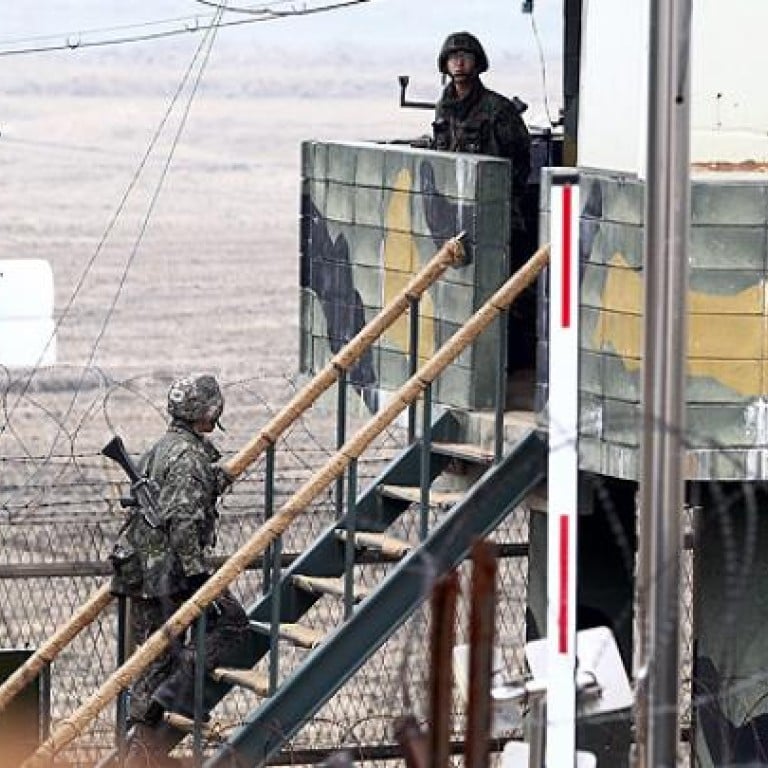
North Korea warns it cannot protect foreign embassies
North Korea on Friday warned foreign embassies in Pyongyang that it was unable to guarantee their safety after April 10 and they should consider evacuating their missions amid soaring nuclear tensions.
North Korea on Friday warned foreign embassies in Pyongyang that it was unable to guarantee their safety after April 10 and they should consider evacuating their missions amid soaring nuclear tensions.
European countries with embassies in Pyongyang, such as Britain and Russia, reported receiving a warning advisory, as an increasingly bellicose North Korea moved two mid-range missiles to its east coast.
Their communication said that from April 10, the North Korean government would be unable to guarantee the safety of embassies and international organisations in the country in the event of conflict
“Their communication said that from April 10, the North Korean government would be unable to guarantee the safety of embassies and international organisations in the country in the event of conflict,” a spokeswoman for Britain’s Foreign Office said.
“Our understanding is that the North Koreans were asking whether embassies are intending to leave, rather than advising them to leave,” she said.
Russian Foreign Minister Sergei Lavrov said Moscow, which has relatively close ties with Pyongyang, was consulting with China over the warning, as well as the United States and other members of the stalled six-party talks on North Korea.
There were “many factors” that needed clarification, Lavrov said.
Bulgaria’s foreign ministry said the chief of all EU missions in Pyongyang had agreed to meet on Saturday to discuss a common position.
North Korea, incensed by UN sanctions and South Korea-US military drills, has issued a series of apocalyptic threats of nuclear war in recent weeks, and there has been growing international concern that the situation might spiral out of control.

Philippine Foreign Secretary Albert del Rosario said he was flying to Seoul on Saturday and would “fully vet” contingency plans for ensuring the safety of 43,000 Filipino workers in South Korea.
The spike in tensions came as Yonhap news agency, citing a top South Korean government official, said North Korea had loaded two mid-range Musudan missiles on mobile launchers and hidden them in underground facilities near its east coast.
“The North is apparently intent on firing the missiles without prior warning,” the official said.
A Navy official told Yonhap that two South Korean Aegis destroyers with advance radar systems had been deployed – one off the east coast and one off the west coast – to track any missile launch.
The Musudan has never been tested, but is believed to have a range of around 3,000 kilometres, which could theoretically be pushed to 4,000 with a light payload.
That would cover any target in South Korea and Japan, and possibly even reach US military bases located on the Pacific island of Guam.

“We’re taking all the necessary precautions,” Carney said.
The Pentagon has said it will send missile-interceptor batteries to protect its bases on Guam, a US territory some 3,380 kilometres southeast of North Korea and home to 6,000 American military personnel.
Most experts think the North is not yet capable of mounting a nuclear device on a ballistic missile which could strike US bases or territory.
On Thursday the North Korean army said it had received final approval for military action, possibly involving nuclear weapons, against the threat posed by US B-52 and B-2 stealth bombers participating in joint military drills with South Korea.
There has been speculation that Pyongyang might schedule a missile launch to coincide with the birthday of the North’s late founder Kim Il-sSung in mid-April.
“A flight test would make sense,” Daniel Pinkston, a North Korea expert at the International Crisis Group, told AFP.
“But I’d be surprised if they used an untested missile. At this stage in the game, they don’t want to be firing off something that might disintegrate after 30 seconds.”
Tensions have soared on the Korean peninsula since December, when the North test-launched a long-range rocket. In February, it conducted its third nuclear test and drew fresh UN sanctions.
The North also warned this week it would reopen its mothballed Yongbyon reactor – its source of weapons-grade plutonium that was closed in 2007 under an aid-for-disarmament accord.
